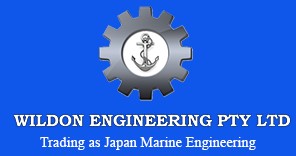An Overview of Device-Based Anti-Fouling Treatments in Marine Vessels
Blog | January 7th, 2022What is an Anti-fouling system? In the maritime industry, it is either a device, paint, or surface coating. And it stops ships from becoming floating biofouling platforms. These devices and coatings prevent marine growths from affecting ship functions, so corrosion prevention is a core precept here, as is ship efficiency. Additionally, those biological contaminants use ship hulls and their ballast tanks. They are used as a translocation mechanism. So, anti-fouling performance must be diligently maintained.
What is an Anti-Fouling System?
It’s a term that still requires some explaining. In anti-fouling programs, vessel engineers incorporate a mechanism or surface covering that prevents marine life from finding an unwitting home. In conventional terms, the system designer looks deeply into hull coatings and anode-equipped electrolytic devices. But larger marine industries are equipped with other potential bio residences, with ballast tanks and input apertures where hardy oceanic microorganisms can thrive. Anti-fouling systems, therefore, include several performance standards that obstruct and even avoid marine life from incursions. Let’s start with a simple hull coating.
Bio-Hampering Hull Coatings
Biocidal paints are carefully monitored by independent eco-viability authorities so that they perform as intended. That means the hull paint is designed to reject the formation of barnacles, mussels, and algae. It carries out these important ship cleaning duties but does not impact any nearby sea or lake life. A series of ecologically mandated regulations and standards manage this requirement, for no ship can be allowed to become a toxic island, nor can it be left to turn into a marine life translocation vehicle. Freed from the anchoring molluscs and algae, the ship travels faster, consumes less fuel, and generally looks much better while it’s cruising serenely past other vessels.
Device-Based Fouling Treatments
As effective as surface treatments or hull paints are, the coating can fade over time. Devices don’t wear away, and they’re far easier to employ than a full hull coating, especially when that hull stretches the length of a massive cargo freighter. An active anode electrolytic system deserves a mention at this point. Designed to carry a small current, the copper or aluminium anodes provide two-punch protection, which means marine life won’t gain purchase on the hull, nor will corrosion. Other notable anti-fouling systems include electro-chlorination equipment (another anodic protection solution) and ultrasonic technology. The latter method uses high-frequency ultrasonic transducers to prevent microorganism growth.
The upshots are compelling. When the device or hull coating works as intended, the hull and ballast tanks no longer carry exotic marine organisms to seas where they’ll contaminate a delicate ecosystem. Most of all, though, the anti-fouling system streamlines the boat, frees it of drag, and it helps to improve fuel consumption. Not coincidentally, the vessel looks so much better when it’s not covered in barnacles.
JAPAN MARINE specializes in spare parts/equipment to ship owners, ship management companies and repair workshops within Australia and other parts of the world. Over the years, we have built a solid reputation in our field by providing high-quality practical solutions to our clients. Our clients include Oil & Gas industry, FPSO projects, Bulk Cement vessels, RoRo vessels, Passenger vessels, General Cargo vessels, Seismic/Survey vessels, Tugs and Trawlers, as well Mining and Power Generation, operators.
Optimized by NetwizardSEO.com.au
Recent Posts
- Yanmar Parts Online Australia – Genuine Yanmar Spare Parts at Competitive Trade Prices
- Turbochargers Supply from Japan Marine: Wildon Engineering’s Excellence in Global Shipping
- Mitsubishi VOS Ballast Water Treatment System: Next-Generation Marine Environmental Solutions
- Yanmar Marine Compressors: Reliable Power Systems for Commercial Vessels
- Water-Lubricated Stern Tube Bearings Explained: How EVR Technology Supports Marine Propulsion
- YANMAR Auxiliary Generator Engine Parts for Commercial Vessels
- Fluid Control Systems: Innovations in Marine Applications
- Yanmar Diesel Generators Australian Distributor: Power for Shipping & Marine Operations
- Navigation & Communication Equipment: Essential Tools for Safe Voyages
- Stern Tube Seals: Preventing Leaks & Maintaining Vessel Integrity
